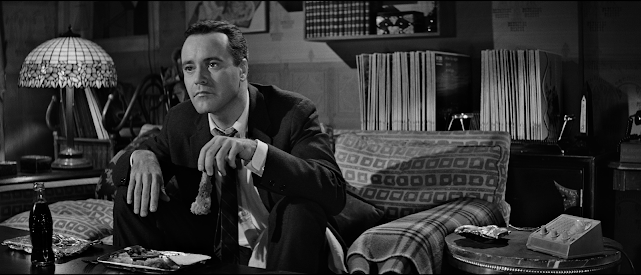The Feast of "Stephen"
If you're a Christian, you might know "The Feast of Stephen" as St. Stephen's Day (the 26th of December) when young men dress up in vaguely nightmarish straw costumes and wander around the town playing alarming music while carrying a dead bird.
This is not about that.
If you're a Doctor Who fan, you might know The Feast of Stephen as the first ever Doctor Who Christmas episode (broadcast on Christmas Day in 1965).
For our purposes this week, The Feast of Stephen concerns a small but pivotal character in the beloved Noël Coward/David Lean classic Brief Encounter.
Brief Encounter is remembered today as perhaps the most famous unconsummated love affair in cinema history. Released in 1945 (but without so much as the slightest hint of a war or its effects) it tells the story of two (married) individuals who meet by chance on a train platform and proceed to teeter on the brink of having an affair for a few weeks.
They do not, in fact, have an affair (sorry; spoilers!) but they do listen to a great deal of Rachmaninov, and they gaze meaningfully at each other rather a lot. And on one occasion they get as far as borrowing a friend's flat for the evening... or at least until that friend returns home unexpectedly early and interrupts them mid-Rachmaninov.
Stephen is the friend whose flat they are using for their clandestine piano concerto, and he only makes the one appearance in the film (played by the stentorian Valentine Dyall). Don't dismiss him too quickly, because he's about to form the basis for our own personal Christmas Special this year.
The film was a huge success with audiences and critics alike, especially in parts of the world that were not England. Film-goers were captivated by this most British of love stories, especially at a time when much of the world was lying in the ruins of a particularly violent and apocalyptic war.
In the shadow of unimaginable horrors, this rather quaint non-affair between two slightly repressed almost-lovers must have seemed like a welcome throwback to a time when a crisis was something rather smaller and more domestic than the Blitz, or the Holocaust, or the atomic bomb.
While everyone else was swept up in the plight of the adulterous semi-lovers, Billy Wilder found himself thinking about Stephen - the guy whose flat had been commandeered for someone else's naughty assignation.
How annoying must it be (mused Wilder) to realise that your own flat is being used for illicit nookie that has nothing to do with you?
He decided that some day he would make a film about that guy.
The Film About That Guy
It took him almost fifteen years to get around to it, but Wilder eventually got a chance to make his film, and it has come to be regarded as one of the greatest films of all time.
The Apartment tells the story of C. C. Baxter, a nebbish accountant who works for an immense insurance company in New York City. He's a bachelor with zero social life who spends most evenings in his (rented) apartment eating frozen TV dinners and watching re-runs on television. He is emphatically not the kind of guy they generally make romantic comedies about.
Long before the #MeToo movement had a following (indeed before anyone knew what a hashtag was going to be) The Apartment gives film-goers a crash course in the highly toxic intersection between Office Politics and Gender Politics.
It cannot be stressed too highly just how modern The Apartment would have felt in 1960. From the casual unmarried sex (highly taboo at the time) to the frozen TV dinner (long before Marks & Spencer made ready-meals trendy). From the girls who organise their social lives (their sex lives; let's be honest) around their favourite television shows, to the (oblique) reference to an abortion doctor (highly illegal in 1960, and now highly illegal once again) The Apartment deals with many aspects of urban life that would have been completely out of bounds to film-makers just a few years earlier. That's one of the reasons why Billy Wilder had to wait almost fifteen years before he could tell the story he wanted to tell about Brief Encounter's Stephen.
The Apartment may not be a RomCom, and it might be the most un-Christmas-y of Christmas movies, but it delivers a gut-punch to the American Dream as it was being sold to so many people at the time.





















Comments
Post a Comment